Episodes
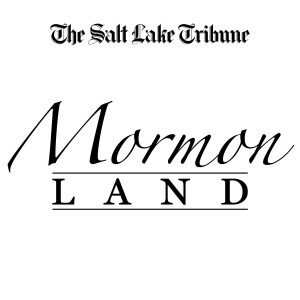
Wednesday Apr 12, 2023
Wednesday Apr 12, 2023
President Russell Nelson, worldwide leader of The Church of Jesus Christ of Latter-day Saints, has urged women to be seen and be heard, to speak up and speak out — in their communities, in their homes and in their congregations.
That may be happening at the grassroots level, but it isn’t occurring in the patriarchal faith’s highest-profile forum: General Conference. In the most recent gathering, only two of the 33 speakers were women. Even in past conferences, that number rarely reached a handful.
Researcher Eliza Wells, a doctoral student in philosophy at the Massachusetts Institute of Technology, studied this phenomenon in conferences over a 50-year period for Dialogue: A Journal of Mormon Thought and discovered an even deeper chasm: Men were at least 16 times more likely to be quoted over the pulpit than women — a gap that holds true even when women were speaking.
It’s an inequity that many women and men in the church notice and hope to change.
On this week’s show, Wells discusses her findings, the implications, the message sent, how to change that pattern and why it matters.
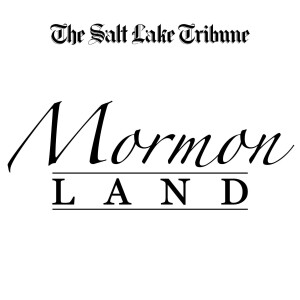
Wednesday Apr 05, 2023
Wednesday Apr 05, 2023
When President Russell M. Nelson took to the podium at this past weekend’s General Conference of The Church of Jesus Christ of Latter-day Saints and steadfastly called on members and all others to eliminate contention and become, like the Prince of Peace, peacemakers, Patrick Mason and David Pulsipher had to be cheering.
After all, the two scholars wrote a book about that very ideal. Titled “Proclaim Peace: The Restoration’s Answer to an Age of Conflict,” their volume explained how “peace is possible” and explored how the Mormon message — along with writings from other faiths and other thinkers — can bring help, healing and harmony to the world, nations, communities, homes and individual hearts.
On this week’s show, they discussed Nelson’s address, other conference speakers who also pleaded for harmony and unity, and how true Christian discipleship can end political polarization and cultural conflicts, and convey peace to one soul and all souls.
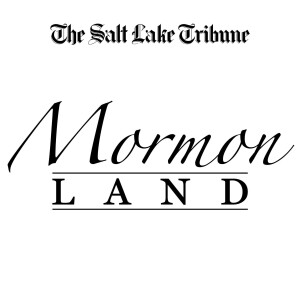
Wednesday Mar 29, 2023
Wednesday Mar 29, 2023
Depression, attention-deficit disorder, anxiety, anorexia, insomnia, scrupulosity, obsessive-compulsive disorder and more. Like people from every walk of life, missionaries for The Church of Jesus Christ of Latter-day Saints are not immune from mental health challenges.
In fact, the stresses of full-time proselytizing, with its high demands and high expectations, can exacerbate the unsettling symptoms and the sometimes-crippling complications.
As missionaries increasingly encounter mental health challenges, the church is increasingly responding — with better trained mission presidents, mission therapists and mission health councils.
On this week’s show, two former missionaries — Cora Longhurst, who served in the Philadelphia Mission, and Michael Skaggs, who labored in Las Vegas and on a service mission at church headquarters — share the struggles they endured during their stints, the help they received and how they are coping now.
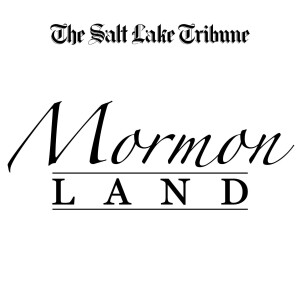
Wednesday Mar 22, 2023
Wednesday Mar 22, 2023
In the 1830s, Mormonism’s founder, Joseph Smith, offered Latter-day Saints an expansive view of education. In his mind, temple (a religious space) and school (a secular place) were linked in a joint spiritual and intellectual venture. Smith urged followers in The Church of Jesus Christ of Latter-day Saint to gather “every needful thing” to further that kind of learning.
Now, writer/editor Melissa Inouye and the late Kate Holbrook, who directed women’s history for the church, have gathered two dozen essays by Latter-day Saint women wrestling with what it means to “flourish in a world of complexity and abundance.”
The book is titled “Every Needful Thing: Essays on the Life of the Mind and the Heart.” On this week’s show, two of the authors, Farina King of the University of Oklahoma, and Tanya Wendt Samu of New Zealand’s University of Auckland, discuss their views of the Book of Mormon, seen by some as an exploration of racism, and their identities as Indigenous scholars and Latter-day Saints as they navigate a life of learning and a life of faith.
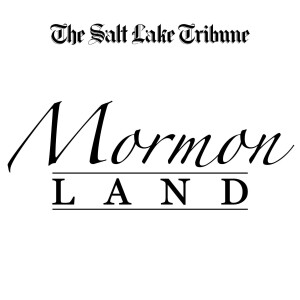
Wednesday Mar 15, 2023
Wednesday Mar 15, 2023
It seems to be a common human trait to wonder how others see us. Who among us is most likable? Most respected? Most trusted? It is, of course, of particular value to those in the minority, perceived as outcasts or threats or newcomers to the scene. This may be especially pertinent to faith groups.
A new poll from the Pew Research Center found that respondents viewed Catholics, Jews and mainline Protestants more positively than they do members of The Church of Jesus Christ of Latter-day Saints. Evangelical Christians, Muslims and even atheists also scored higher than Mormons, as they are referred to throughout the survey.
“A quarter of Americans say they hold very or somewhat unfavorable views of Mormons,” the Pew report stated, “while 15% express favorable opinions.”
On this week’s show, Brigham Young University political science professor Quin Monson, himself a pollster and co-author of “Seeking the Promised Land: Mormons and American Politics,” discusses those perceptions, whether they have changed through the years and if it should be a cause for concern in the missionary-minded faith.
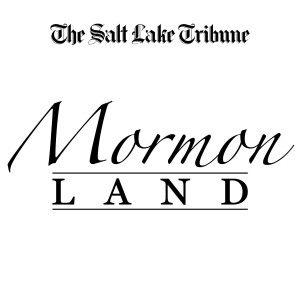
Wednesday Mar 08, 2023
Wednesday Mar 08, 2023
Many members of The Church of Jesus Christ of Latter-day Saints complain about the fact that there’s no expansive or universal celebration of Easter in their religion.
While much of Christendom builds up to the holiest day on the calendar with preparation rituals like Lent or immersive traditions such as waving palms on Palm Sunday, washing feet on Maundy Thursday, or carrying a large cross for Good Friday, Latter-day Saints have no accepted traditions for Easter. Some have begun to develop their own way of commemorating Easter with prayers, readings and discussions.
Eric Huntsman, a Brigham Young University professor of ancient scripture, has spent his career reading biblical texts in their original languages. Huntsman, who is currently the academic director at BYU’s Jerusalem Center, has just published a book in time for the holiday, with Trevan Hatch, “Greater Love Hath No Man: A Latter-day Saint Guide to Celebrating the Easter Season” that explores the scriptural accounts for each day of Holy Week, explains how those events have been celebrated in various Christian traditions and shares suggestions for how Latter-day Saints can commemorate the occasions in their own homes.
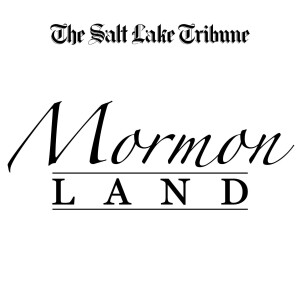
Wednesday Mar 01, 2023
Wednesday Mar 01, 2023
In 1833, a leading Latter-day Saint, William W. Phelps, published a column under the headline “Free People of Color,” making it clear that, since its founding three years earlier, The Church of Jesus Christ of Latter-day Saints exercised no racial barriers.
Black members were not only welcome in the fledgling faith but also eligible for all of its rites and privileges.
It was a stance that did not sit well with many Missourians at the time and with the racist views scarring much of America in those pre-Civil War days. It’s also a position that did not last inside the church itself.
The faith’s second prophet-president, Brigham Young, eventually departed from the ways of founder Joseph Smith and instituted a ban barring Black Latter-day Saints from priesthood ordinations and temple ordinances.
That prohibition endured for nearly 130 years, a racist stain that the global faith and its members grapple with to this day.
In his new book, “Let’s Talk About Race and Priesthood,” from church-owned Deseret Book, W. Paul Reeve, head of Mormon studies at the University of Utah, relies on historical records and scriptural passages to examine how and why the Utah-based church shifted from an inclusive approach on race to a restricted one and, ultimately, back to its original universalist theology.
In this week’s show, Reeve, who flatly states that he doesn’t believe the former priesthood/temple ban was of “divine origin,” discusses the faith’s evolution on this sensitive topic and the challenges that still lie ahead.
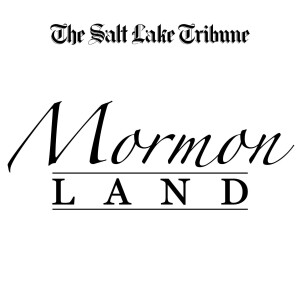
Tuesday Feb 21, 2023
Tuesday Feb 21, 2023
First came a whistleblower’s call for the IRS to punish Ensign Peak Advisors, the investment arm of The Church of Jesus Christ of Latter-day Saints, accusing it of stockpiling a reserve fund worth tens of billions of dollars intended for charity but never spent for that purpose.
Then came a federal lawsuit, now on appeal, from a prominent and prosperous former member alleging fraud by the Utah-based faith and seeking the return of his tithing donations.
In recent weeks, that IRS whistleblower called on the U.S. Senate Finance Committee to investigate Ensign Peak for illegally dodging billions in taxes.
And, finally, came word that the Securities and Exchange Commission is investigating Ensign Peak over past investment practices that reportedly concealed the multibillion-dollar portfolio.
Will these unflattering headlines about the church’s wealth ever end? What might be the final outcome? Does this global faith of nearly 17 million members simply have too much money? It reported spending nearly $1 billion on charity in 2021. Could it — and should it — be doing more? How can the church avoid such unflattering attention in the future? Would further fiscal transparency — in essence, “showing us the money” — be a solution? Or if members knew the full financial picture, would they stop paying tithes?
On this week’s show, Sam Brunson, a popular Latter-day Saint blogger and a tax law professor at Loyola University Chicago, discusses these questions and more.
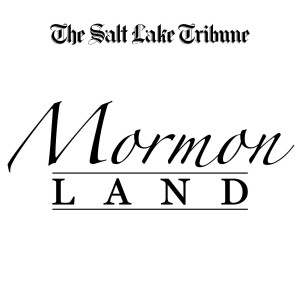
Tuesday Feb 14, 2023
Tuesday Feb 14, 2023
It’s Valentine’s Day, the time when many American couples turn to romantic thoughts and gestures. (Think chocolates and roses.) What better occasion to think about the nature of Latter-day Saint marriages?
Bethany Brady Spalding and McArthur Krishna, authors of the bestselling “Girls Who Choose God” and “Guides to Heavenly Mother” series, have spent years exploring the influence of the divine feminine in the beliefs and practices of The Church of Jesus Christ of Latter-day Saints. Now they have turned their attention to a divine couple: Heavenly Parents.
They are deeply committed to the idea that marital equality is not just a human construct but also an eternal truth. In their new online workbook, titled “In the Image of Our Heavenly Parents: A Couple’s Guide to Creating a More Divine Marriage” from D Street Press, Spalding and Krishna, as well as Latter-day Saint therapists, explore these religious role models and 12 principles for improving marriages.
On this week’s show, the two editors, along with Jennifer Finlayson-Fife, a Latter-day Saint therapist in Chicago, discuss the new book and how earthly couples can build heavenly marriages.
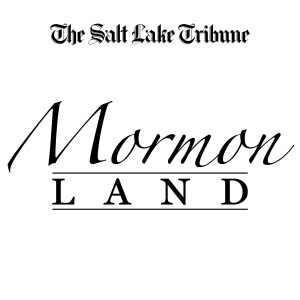
Wednesday Feb 08, 2023
Wednesday Feb 08, 2023
In the wake of drought, climate change and, primarily, human-caused incursions, the Salt Lake Valley’s namesake ecological landmark, the Great Salt Lake, is dying, shriveling up before our very eyes.
Experts warn, in fact, that this shrinking body of water could vanish within five years, leaving behind an exposed lakebed and a source of toxic dust storms that could make this place — this place that Brigham Young reportedly declared the “right place” to become Mormonism’s new home — uninhabitable.
So the need to save the lake is obvious, and the stakes are huge — not only for Salt Lakers and Utahns but also for The Church of Jesus of Latter-day Saints. The faith’s world headquarters is here. Its history is here. Its strength — both in membership and, frankly, money — is here. Its iconic Salt Lake Temple and global offices are here.
Thankfully, it’s not too late to preserve the lake, but it will take a concerted, costly and expedited effort, and the Utah-based church — and its members — must play a vital role.
On this week’s show, Ben Abbott, professor of ecology at church-owned Brigham Young University, discusses the lake’s precarious present and what Latter-day Saints and their church could do to help secure its future.

More Mormon Land
There's more to "Mormon Land" than just the podcast. You can get access to episode transcripts, Tribune faith stories and more on Patreon.
Sign up for the free weekly Mormon Land newsletter to get the latest happenings about the church from around the world.
And follow Mormon.Land on Instagram.







